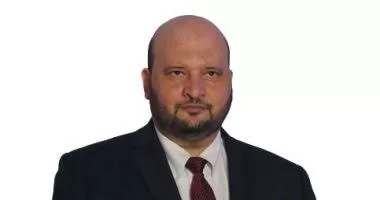By Ibrahim Negm
Senior Advisor to the Grand Mufti of Egypt
Two decades into the third millennium, the world’s anticipation for a brighter future has been starkly juxtaposed with an era marked by globalization and rapid technological advancement. While these developments promised prosperity, they also brought significant upheaval. This millennium has seen an upsurge in terrorism and extremism leading to pervasive Islamophobia and hate speech, a decline in steadfast moral values, the multifaceted challenges of cyberspace, the devastating impact of the COVID-19 pandemic, and geopolitical tensions such as the Russo-Ukrainian conflict, all of which have taken a toll on global stability.
In response, the General Secretariat for Fatwa Authorities Worldwide, a coalition aiming to unify global Fatwa authorities and top notch Muslim scholars, has consistently spearheaded efforts to address these challenges. Employing Islamic jurisprudential frameworks coupled with proactive measures, the Secretariat’s dedication to tackling these issues has culminated in their annual conference titled “Challenges of the Third Millennium.”
These challenges, vast in their scope and complexity, require meticulous attention. The conference prioritizes addressing extremism, particularly its analysis and the subsequent need for deconstruction. The ripple effect of extremism threatens the harmony, security, and progression of entire societies.
While religious extremism spans various faiths and histories, the disproportionate focus on “Islamist” extremism has given rise to Islamophobia. This conference brings this alarming trend to the forefront, especially as Muslims are disproportionately affected. It underscores the importance of a collaborative effort between policymakers and religious leaders to advocate for narratives rooted in coexistence and peace building.
Reflecting on our past, it’s disheartening to see the deviation from our core values. The era’s moral ambivalence is another concern addressed by the conference. In these tumultuous times, there’s an urgent need to re-anchor humanity to its innate nature, guided by religious principles. Atheism, with its potential to erode religious and moral foundations, is another focus. By understanding its underlying intellectual assumptions, the conference aims to address its far-reaching implications.
Technology and AI, while transformative, requires prudent regulation. The conference emphasizes a critical examination of digital advancements and advocates for boundaries to ensure its ethical use. Particularly, the growing influence of AI and its integration into our daily lives warrants careful consideration. The conference also seeks to understand the implications of digital fatwa in the realms of cyberspace and AI, ensuring religious rulings remain relevant and align with the principles of religious moral norms.
The global economy faces significant strain, further exacerbated by the pandemic and geopolitical tensions. The conference stresses the prudent use of resources to drive innovation, empower reforms across sectors, and promote a research-driven approach, maximizing the utility of all available assets.
Each epoch presents its distinct challenges and victories. Every obstacle offers an opportunity for transformative action, aiming to build a world centered on empathy, growth, and security. As we grapple with our era’s intricacies, it’s imperative to remember that the task of shaping a better world rests with us.






Discussion about this post